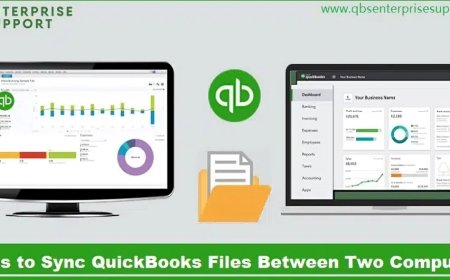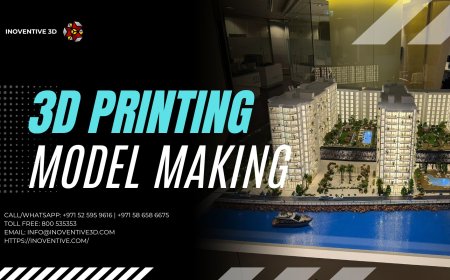Unlocking the Power of a Custom Ecommerce Website: A Comprehensive Guide
A Custom Ecommerce Website is designed to meet the specific requirements of a business, offering a level of personalization that pre-built platforms like Shopify or WooCommerce may not provide. Here are some compelling reasons to invest in one:
In todays digital age, businesses are increasingly turning to online platforms to reach customers and drive sales. ACustom Ecommerce Website offers a tailored solution that aligns with a brands unique needs, setting it apart from generic, cookie-cutter platforms. Unlike off-the-shelf solutions, a custom-built site provides flexibility, scalability, and the ability to integrate specialized features. This article explores the benefits, development process, and key considerations of a Custom Ecommerce Website, with a focus on Software Integration to enhance functionality and user experience.
Why Choose a Custom Ecommerce Website?
A Custom Ecommerce Website is designed to meet the specific requirements of a business, offering a level of personalization that pre-built platforms like Shopify or WooCommerce may not provide. Here are some compelling reasons to invest in one:
-
Unique Brand Identity: A custom site reflects your brands aesthetics and values, creating a memorable user experience. From bespoke layouts to tailored functionalities, every element can be crafted to resonate with your target audience.
-
Scalability: As your business grows, a Custom Ecommerce Website can scale seamlessly. Whether its handling increased traffic or adding new product categories, a custom solution adapts without the limitations of pre-built platforms.
-
Software Integration: One of the standout advantages is the ability to integrate with various software systems. Software Integration ensures your website connects with tools like CRM systems, inventory management software, or payment gateways, streamlining operations and improving efficiency.
-
Enhanced User Experience: A custom site allows for intuitive navigation, faster load times, and features tailored to your customers preferences, leading to higher engagement and conversions.
-
SEO Optimization: Custom websites can be built with search engine optimization in mind, incorporating clean code, fast performance, and mobile responsiveness to rank higher on search engines.
The Development Process of a Custom Ecommerce Website
Building a Custom Ecommerce Website involves several stages, each requiring careful planning and execution. Heres a breakdown of the process:
1. Defining Goals and Requirements
The first step is understanding your business objectives. Are you aiming to increase sales, improve customer retention, or expand into new markets? This phase involves identifying features like product filters, payment options, or Software Integration with tools such as accounting software or marketing platforms.
2. Choosing the Right Technology Stack
The technology stack determines the websites performance and scalability. Popular choices include:
-
Frontend: React or Angular for dynamic, user-friendly interfaces.
-
Backend: Node.js, Python (Django), or PHP (Laravel) for robust server-side logic.
-
Database: MySQL or MongoDB for efficient data management.
Software Integration plays a critical role here, as the stack must support seamless connectivity with third-party tools like ERP systems or email marketing platforms.
3. Design and User Experience
The design phase focuses on creating a visually appealing and intuitive interface. Wireframes and prototypes are developed to map out the user journey, ensuring easy navigation and a cohesive brand experience. Custom features, such as personalized product recommendations or interactive elements, can be incorporated to enhance engagement.
4. Development and Software Integration
During development, the websites functionality is brought to life. This includes coding the frontend and backend, setting up the database, and implementing Software Integration with tools like:
-
Payment Gateways: Stripe, PayPal, or Square for secure transactions.
-
Inventory Management: Tools like Zoho Inventory or TradeGecko to track stock levels.
-
CRM Systems: Salesforce or HubSpot to manage customer relationships.
-
Analytics Tools: Google Analytics or Mixpanel for performance tracking.
Proper Software Integration ensures these tools work harmoniously, reducing manual work and improving operational efficiency.
5. Testing and Quality Assurance
Before launch, the website undergoes rigorous testing to identify and fix bugs, ensure compatibility across devices, and verify that all integrations function correctly. This step is crucial to delivering a seamless user experience.
6. Launch and Maintenance
Once the site is live, ongoing maintenance is essential to address updates, security patches, and performance optimization. Regular Software Integration updates ensure compatibility with new versions of third-party tools, keeping the website running smoothly.
Key Considerations for a Custom Ecommerce Website
When planning a Custom Ecommerce Website, several factors need attention to ensure success:
-
Budget: Custom solutions can be more expensive than pre-built platforms, but the investment pays off through enhanced functionality and scalability.
-
Timeline: Development can take several months, depending on complexity and the extent of Software Integration required.
-
Security: Implement robust security measures, such as SSL certificates and secure payment gateways, to protect customer data.
-
Mobile Responsiveness: With mobile commerce on the rise, ensure the website is optimized for smartphones and tablets.
-
Ongoing Support: Partner with a reliable development team for post-launch maintenance and updates, including Software Integration enhancements.
The Role of Software Integration in Ecommerce Success
Software Integration is the backbone of a high-performing Custom Ecommerce Website. By connecting your website with essential tools, you can automate processes, gain insights, and enhance customer satisfaction. For instance:
-
Integrating with a CRM system allows you to track customer interactions and personalize marketing campaigns.
-
Connecting to inventory management software ensures real-time stock updates, preventing overselling.
-
Linking with analytics tools provides data-driven insights to optimize user experience and boost conversions.
Effective Software Integration eliminates silos, enabling seamless data flow between systems. This not only improves operational efficiency but also enhances the customer experience by providing a cohesive journey from browsing to checkout.
Benefits of a Custom Ecommerce Website Over Pre-Built Platforms
While pre-built platforms are cost-effective and quick to set up, they often come with limitations. A Custom Ecommerce Website offers:
-
Flexibility: Build features specific to your business, such as custom checkout processes or loyalty programs.
-
Competitive Edge: Stand out in a crowded market with a unique design and tailored functionalities.
-
Control: Own your websites code and data, avoiding dependency on third-party platforms.
-
Seamless Software Integration: Unlike pre-built platforms, which may have limited integration options, a custom site can connect with any tool, ensuring a tailored ecosystem.
FAQs
1. What is a Custom Ecommerce Website?
A Custom Ecommerce Website is a tailored online store built from scratch to meet a businesss specific needs, offering unique design, functionality, and integrations compared to pre-built platforms.
2. How long does it take to build a Custom Ecommerce Website?
The timeline varies based on complexity, typically ranging from 3 to 6 months. Factors like custom features and Software Integration can extend the development process.
3. Why is Software Integration important for a Custom Ecommerce Website?
Software Integration connects your website with tools like CRM, inventory management, or payment gateways, streamlining operations and enhancing user experience.
4. Is a Custom Ecommerce Website more expensive than a pre-built platform?
Yes, custom websites require




































